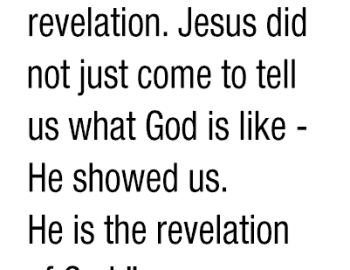The next question is based upon the Carmen Christi of Philippians 2:5-11. You might find my article on this text from the CRI Journal useful, found here. The issue can be summarized in this section from my article:
But how was this action of making Himself “nothing” accomplished? It is just here that we must listen to this hymn from the balcony of heaven itself. We must hear the words from a divine and heavenly perspective. The Son makes Himself “nothing” by taking the form of a servant and being made in the likeness of man.[vii] From the human realm, “being made nothing” by taking does not seem right. But when we see the glory and majesty and power of the One who is here condescending to enter into creaturely existence when He Himself is the Creator, we can begin to appreciate how this act of being made nothing is properly described as taking the form of a servant and being made in the likeness of man. Daniel B. Wallace, an eminent Greek scholar, sees both terms “taking” and “being made” as the means by which the “being made nothing” is accomplished.[viii]
The biggest difficulty with seeing labwn (taking) as means is that emptying is normally an act of subtraction, not addition. But the imagery should not be made to walk on all fours. As an early hymn, it would be expected to have a certain poetic license….The Philippians were told not to puff themselves up with “empty glory,” because Christ was an example of one who emptied his glory. If this connection is intentional, then the Carmen Christi has the following force:
Do not elevate yourselves on empty glory, but follow the example of Christ, who, though already elevated (on God’s level), emptied his glory by veiling it in humanity.[ix]
So the means of the kenosis is the addition of a human nature, the veiling of the divine in the creaturely. This is important to understand, for many interpret Paul to mean that Christ abandons the “form of God” rather than seeing this as an addition of the human nature to the eternal divine nature that was Christ’s. It is this addition that “veils” the form of God. While there are certainly many who see this passage teaching that Christ did indeed lay aside the “form of God,” the words of Paul do not present such a concept.
[vii] Both participles, “taking” and “being made,” are describing the means of the “making Himself nothing,” that is, of the “kenosis.”
[viii] That is, the syntactical function of these two participles is circumstantial modal.
[ix] Wallace, 630.
Now, the point of my question was to expose, through the exegesis of the text, the presuppositional nature of unitarianism in Stafford’s position. It is vital, in examining the argumentation of Jehovah’s Witnesses, Oneness Pentecostals, and Muslims, to recognize the presuppositional nature of their commitment to unitarianism. They rarely defend it, they simply assume it. Here Stafford admits that it is a starting place in his theology that if one is God, one cannot be man. He begins by precluding the possibility of the Incarnation, seen in Philippians 2:5-11 or John 1:14. If you begin with your conclusion, you will always be arguing in circles, and this becomes the operative factor in his interpretational methodology. Though Stafford is far more polished in his presentation than your regular Witness, or Oneness Pentecostal, or Muslim, take the time to examine their materials: you will find the exact same foundational assumption. Paul could not actually be saying Jesus became a servant, because that just isn’t possible. For the Witness, this means Jesus is a pre-existent spirit creature; for the Oneness Pentecostal, it means He must be the Father (hence denying the eternal existence of the Son as a Person); for the Muslim, it means Paul made up Christianity and corrupted the original, pure, Islamic Jesus.
So how did you do in your original viewing of the clip? Did you catch Stafford’s errors on the John 12 text? How about the second section? Did you immediately see the presuppositional nature of his response, and recognize that in many ways, this decided the debate, for Stafford never offered a defense for the presupposition that determines his entire exegetical approach? These are the kinds of skills necessary to exercise proper discernment in the apologetic realm today.



